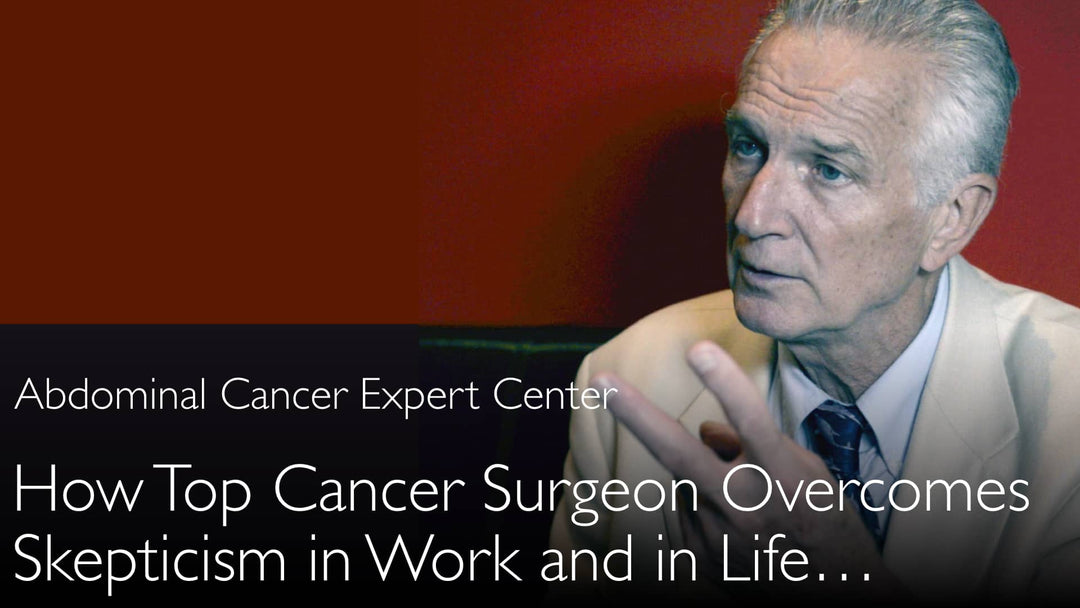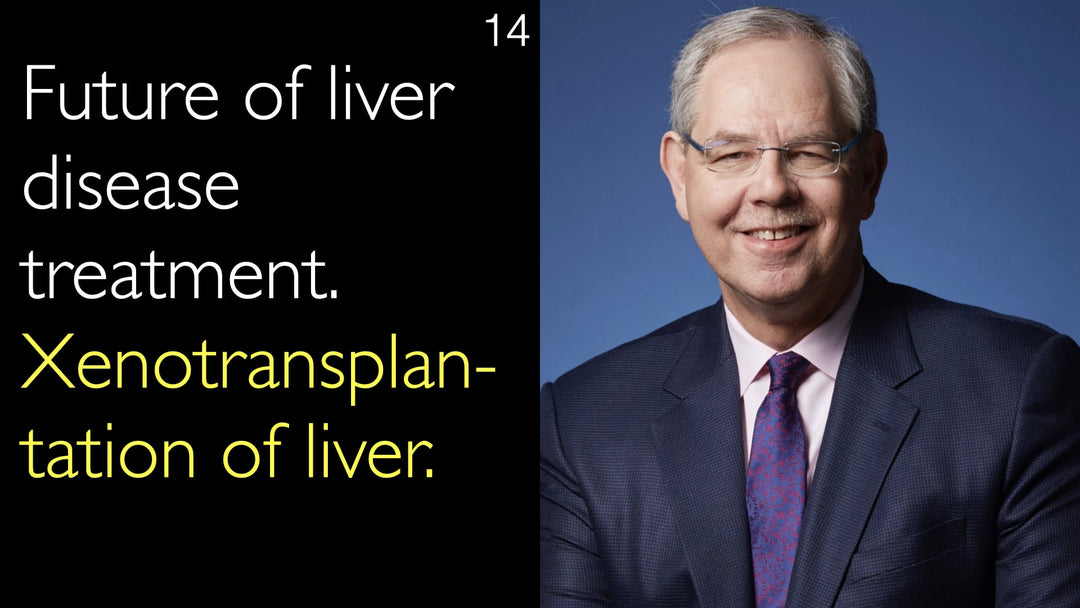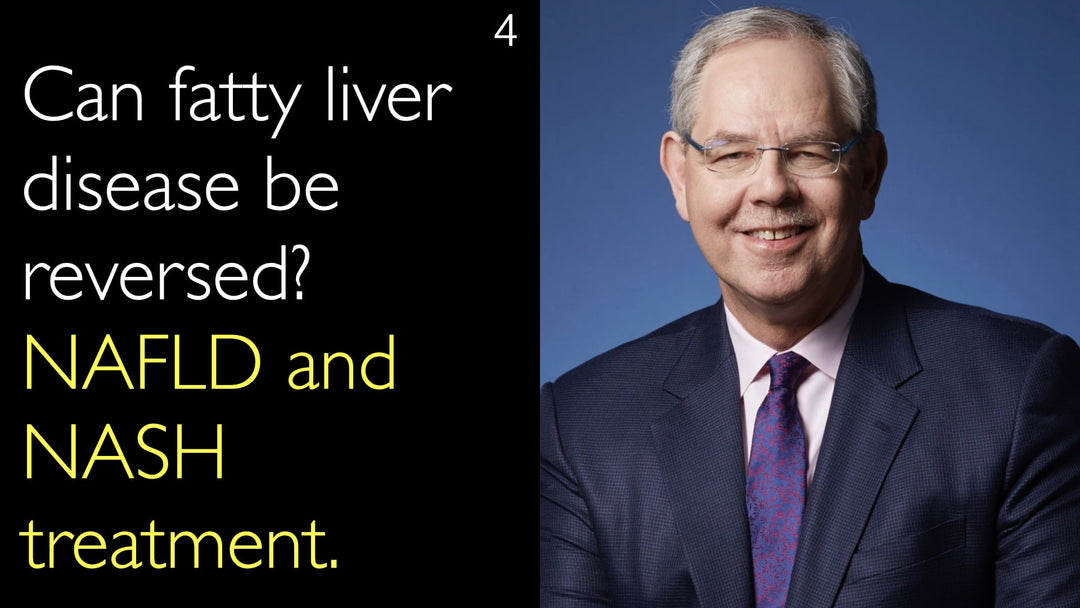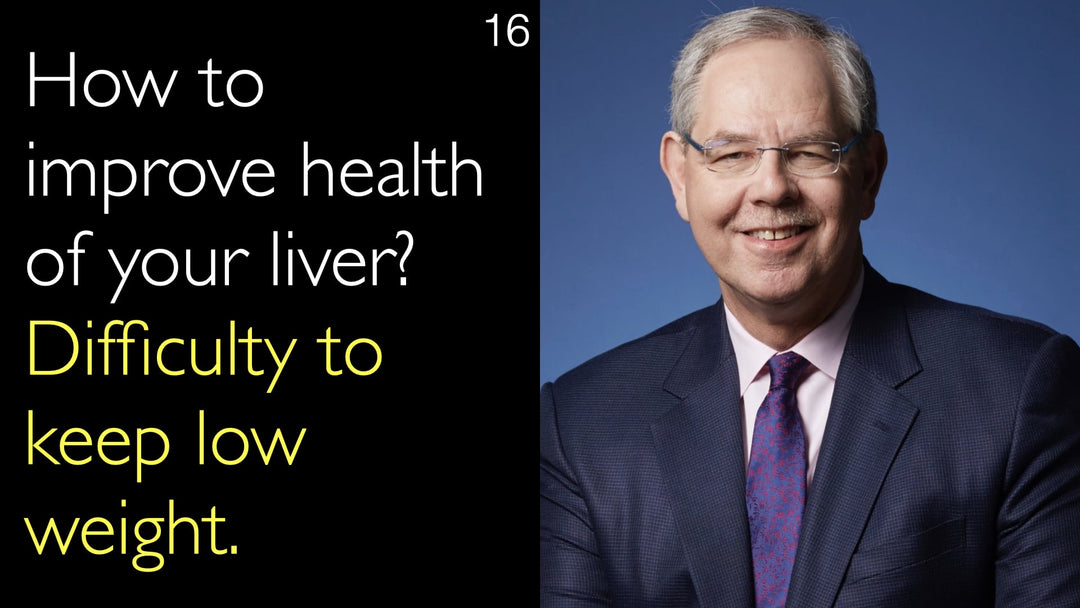Leading expert in peritoneal metastatic cancer treatment, Dr. Paul Sugarbaker, MD, explains how to overcome professional skepticism. He details his decades-long journey developing cytoreductive surgery and HIPEC. Dr. Paul Sugarbaker, MD, emphasizes that resilience comes from faith in your concepts and generating robust data. He advocates for publishing all results, both good and bad, to advance cancer surgery. The interview highlights the ongoing need for improvement in surgical oncology.
Overcoming Skepticism in Advanced Peritoneal Cancer Treatment Innovation
Jump To Section
- Skepticism in Medical Innovation
- Overcoming Criticism with Data
- The Importance of Transparent Results
- Current Limitations of Cancer Surgery
- The Surgeon's Ongoing Challenge
- Full Transcript
Skepticism in Medical Innovation
Pioneering new medical treatments often meets significant resistance from peers. Dr. Paul Sugarbaker, MD, reflects that this is a universal experience for innovators. He references the journey of the Australian doctors who discovered H. pylori, who were initially ridiculed before winning a Nobel Prize. Dr. Anton Titov, MD, notes the pattern described by Gandhi: first they ignore you, then they laugh, then they fight, then you win.
Dr. Paul Sugarbaker, MD, experienced this directly with his work on cytoreductive surgery and HIPEC. Early critics, including senior professors, dismissed his efforts as "extensive surgery in patients who will inevitably die." This skepticism stemmed from a historical reality where no patient had been known to survive peritoneal metastases.
Overcoming Criticism with Data
The key to overcoming professional skepticism is unwavering faith and concrete data. Dr. Paul Sugarbaker, MD, explains that you must believe deeply in the concepts you are developing. He states that the ultimate answer to critics is not argument but evidence. Dr. Sugarbaker was fortunate to be in a position to accumulate extensive data on his peritoneal metastatic cancer treatments.
This data collection began with appendiceal cancer patients, who showed unbelievably good results. Success then extended to peritoneal mesothelioma, where long-term survival rates jumped from near zero to 60-70%. For colorectal cancer with peritoneal metastases, Dr. Paul Sugarbaker, MD, notes the importance of early intervention, where treating a single metastasis can lead to 50-70% long-term survival.
The Importance of Transparent Results
A critical component of validating a new treatment is publishing comprehensive results. Dr. Paul Sugarbaker, MD, stresses the need for critical self-evaluation. He insists that researchers must publish not only their good results but also their bad results. Dr. Anton Titov, MD, agrees, identifying publication bias as a major issue in medicine that hinders proper evaluation.
This transparency prevents the distortion that occurs when only successful clinical trials see the light of day. By sharing all outcomes, the medical community can have an honest and accurate assessment of a new procedure's true efficacy and limitations.
Current Limitations of Cancer Surgery
Despite advances, cancer surgery remains flawed for many gastrointestinal malignancies. Dr. Paul Sugarbaker, MD, provides a sobering assessment of current surgical outcomes. He states that surgery by itself is a failure for a large number of cancers. For gastric cancer, over 60% of patients still die from local recurrence and peritoneal metastasis after an operation.
Dr. Sugarbaker also highlights pancreatic cancer, where recurrence often happens right at the surgical site. He contrasts this with rectal cancer, where new technologies have successfully reduced local recurrence to around 5%. The primary goal of cancer surgery is local control; without it, the surgeon cannot help the patient long-term. This is also a significant challenge in diseases like retroperitoneal sarcoma, where most tumors recur despite resection.
The Surgeon's Ongoing Challenge
The recognition of surgery's flaws is a powerful motivator for innovation. Dr. Anton Titov, MD, observes that this focus on improvement drives Dr. Sugarbaker forward. Dr. Paul Sugarbaker, MD, confirms this, rejecting the notion that cancer surgery has reached its peak. He sees a huge challenge in being a cancer surgeon and believes methods must continue to improve in the long term.
This mindset allows a pioneer to disregard critics and remain focused on generating results. The ongoing need for better local control and improved patient outcomes provides a clear and compelling mission for surgical oncologists worldwide.
Full Transcript
Dr. Anton Titov, MD: Renowned Harvard-trained American cancer surgeon reflects on how he overcomes skepticism. How Dr. Paul Sugarbaker overcomes resistance from peers about his groundbreaking metastatic peritoneal cancer treatment. Dr. Paul Sugarbaker has spent many decades of intense surgical career to develop and refine a cancer treatment method that now bears his name, The Sugarbaker Procedure.
How does he find strength to overcome his critics? How does a leading cancer surgeon overcome skeptics? Dr. Paul Sugarbaker overcame decades of criticism from other surgeons and oncologists about the results of cytoreductive surgery and Hyperthermic Intraperitoneal Chemotherapy (HIPEC).
He shares the source of his resilience in the face of adversity. Colon cancer, gastric cancer, and ovarian cancer spread in the abdomen and peritoneal cavity. Peritoneal metastases in advanced stage 4 colon cancer treatment by cytoreductive surgery and Hyperthermic Intraperitoneal Chemotherapy (HIPEC), also known as hot chemo bath or heated chemotherapy.
Medical second opinion clarifies colon cancer or ovarian cancer diagnosis. Medical second opinion confirms that cure is possible in metastatic colon cancer. Intraperitoneal chemotherapy treatment for advanced stage 4 cancer with metastatic lesions in the abdomen.
Medical second opinion helps to select a precision medicine treatment for stage 4 ovarian cancer, stage 4 colon cancer, or metastatic stage 4 gastric cancer. Get medical second opinion on advanced cancer with peritoneal metastases. Best peritoneal metastatic advanced cancer treatment by surgical operation and regional chemotherapy.
Video interview with Dr. Paul Sugarbaker, leading expert in peritoneal metastatic cancer treatment, including cytoreductive surgery and Hyperthermic Intraperitoneal Chemotherapy (HIPEC), hot chemo bath, heated chemotherapy. Best cancer surgery requires leading dedicated surgeons.
Dr. Paul Sugarbaker, MD: Everyone who develops and promotes a pioneering treatment or a pioneering discovery meets a lot of resistance. It is resistance from peers, from very smart men and women. We know that.
A Nobel Prize for discovering H. pylori was given to Australian doctors who were neglected and ridiculed by peers for a long time. There is a saying by Gandhi: "First they ignore you, then they laugh at you, then they fight you, then you win."
I have seen that criticism in science when I was doing my PhD studies. My scientific mentor experienced a lot of criticism until his discoveries were clearly shown to be right. In the surgical world, you encounter criticism and you have to operate. Every time criticism bears down on you.
Dr. Anton Titov, MD: How do you overcome criticism? How do you power through the critics? How do you keep going?
Dr. Paul Sugarbaker, MD: What you say was very true about this work. Early on, when I was younger, there was a lot of criticism. Not at Harvard, not at the National Institutes of Health, but elsewhere.
One professor would evaluate my work as "extensive surgery in patients who will inevitably die of cancer." Because the general surgeon at that time had never seen a patient survive peritoneal metastases.
I guess it was asking a lot of these surgical leaders to believe that we could achieve this kind of success. You just have to have enough faith in yourself and in the concepts that you are developing. That no matter what the criticisms are, you keep moving towards your goal.
Of course, the answer to those criticisms is data. Luckily, I was in a situation where I was allowed to accumulate reams of data about treatment of peritoneal metastatic cancer.
First, we accumulated treatment results about appendiceal cancer (pseudomyxoma peritonei) patients. Patients with appendiceal cancer did actually unbelievably well. We then accumulated results of treatment of the peritoneal mesothelioma cancer patients.
At this time, they virtually all have died. Now we are looking at 60% to 70% long-term survival of patients with peritoneal mesothelioma. The colon cancer metastatic peritoneal cancer work is a little bit more challenging.
We're finding out that we just need to initiate the treatments for colon cancer with peritoneal metastases at a very small extent of metastases. We like to be curing a single peritoneal metastasis from colorectal cancer. Then we can have 50% to 70% of those patients survive long-term.
Data is what you need to generate. You need to critically evaluate what you are doing. You need to publish your results and publish not only your good results but your bad results too.
Dr. Anton Titov, MD: This is a big issue in medicine, as we well know. There is a bias of selection that only the good results of successful clinical trials are published. Publishing only good treatment results really prevents a lot of evaluation of new treatments and procedures.
Dr. Paul Sugarbaker, MD: Yes. Yes. We are struggling still in some cancer diseases. Surgery by itself is a failure for a large number of gastrointestinal malignancies.
Cancer surgery for gastric cancer, for the most part, is a failure. More than 60% of the patients still die because of local recurrence and peritoneal metastasis after surgical operation for gastric cancer. Gastric cancer surgery is definitely flawed.
Surgery for pancreatic cancer is flawed. A majority of patients with pancreatic cancer recur right where the surgeon was working. Pancreatic cancer recurs right at the pancreatectomy site. Pancreatic cancer surgery is extremely flawed and it should be improved.
It used to be a similar situation with rectal cancer. We had a large number of patients whose rectal cancer recurred locally.
Dr. Anton Titov, MD: There are now surgical technologies that have shown us important insights. We don't need to have more than a 5% or so local recurrence for rectal cancer. Cancer surgery has as its first and foremost goal local control of cancer.
Cancer surgeon should achieve local control of cancer first by correct operation. Then medical oncologist can achieve great treatment results for cancer patients around the rest of the body.
Dr. Paul Sugarbaker, MD: But cancer surgeon might not get local control of cancer. Then the surgeon does not have any opportunity really to help the cancer patient in the long term. Cancer surgery should recognize that it is seriously flawed with some of the diseases.
For example, retroperitoneal sarcoma. Most retroperitoneal sarcomas recur despite resection of retroperitoneal sarcoma.
Dr. Anton Titov, MD: What I hear in your words is that you keep being focused on the fact that, despite all great achievements of surgical methods, there is so much to improve in cancer surgery treatment. That motivates you to go forward. You get the treatment results data, and you disregard the critics.
Dr. Paul Sugarbaker, MD: Yeah, yeah. That is true. People sometimes think "we have done all we can with cancer surgery, and cancer surgery is all going to be done the same method for all patients." But that is not true.
There's a huge challenge that goes with being a cancer surgeon. Cancer surgery methods should be improved in the long term. This is our challenge in treating cancer by surgery.
Dr. Anton Titov, MD: Most medical breakthroughs first meet skepticism and resistance of peers. How does leading cancer surgeon Dr. Paul Sugarbaker overcome skeptics in work and life?







